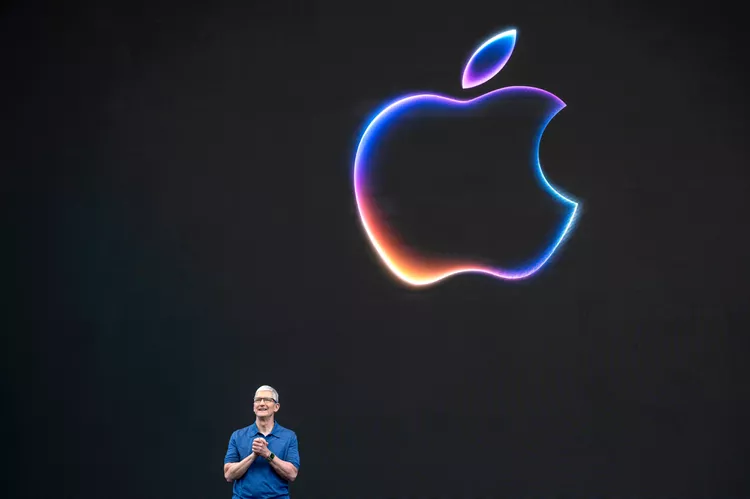As August came to a close, stocks rebounded, positioning the S&P 500 just below its all-time high heading into September. However, significant changes have occurred beneath the surface since July.
The Magnificent Seven (MAGS) stocks, once dominant in the market, have struggled to fully recover from recent sell-offs. The year’s most popular trade—a bullish bet on big tech stocks—has lost momentum as investors shift focus toward dividend-paying and rate-sensitive stocks, anticipating interest rate cuts by the Federal Reserve.
With the Fed almost certain to lower rates at its September meeting, key questions for the market include: How substantial will the rate cuts be? And can the AI trade regain its momentum?
Here are five stocks that could lead market trends or see significant price movements in September:
NVIDIA
Nvidia (NVDA) delivered another solid quarterly earnings report on Wednesday, yet the results didn’t meet the lofty expectations of investors.
The market’s lukewarm reception of Nvidia’s earnings reflected growing concerns about the sustainability of tech’s AI frenzy and Nvidia’s rapid rise. Microsoft (MSFT), Alphabet (GOOG; GOOGL), Amazon (AMZN), and Meta (META) collectively spent $58.5 billion on infrastructure in the second quarter, much of it directed toward AI data centers. The hefty price tag raised eyebrows on Wall Street, leading some to question the wisdom of Big Tech’s investments. Despite benefiting from this capital spending, Nvidia has faced challenges in recent months.
After more than a year and a half of a monster rally, Nvidia is now held to a much higher standard than most companies. On Wednesday, the company projected current-quarter revenue of $32.5 billion, about 2% above Wall Street’s consensus—a stark contrast to previous quarters when Nvidia consistently beat expectations by double-digit percentages.
Nvidia has served as a proxy for market enthusiasm around AI for over a year. Its performance in September will likely hinge on whether doubts about AI’s payoff are fleeting or enduring.
APPLE
Apple (AAPL) is expected to launch its new AI-enabled iPhone model, the iPhone 16, at an event in Cupertino, California, on September 9.
Apple had a rough start to the year, with its stock dropping about 11% in the first quarter amid concerns over sluggish iPhone sales and uncertainty surrounding the company’s AI strategy. However, shares have since rebounded following the June unveiling of Apple Intelligence, the company’s custom artificial intelligence system.
Apple Intelligence is anticipated to drive a significant upgrade cycle, with existing iPhone owners trading in their older devices for newer, often pricier models. Wedbush analysts estimate that 300 million iPhone owners haven’t upgraded in over four years, potentially setting the stage for Apple to sell upwards of 240 million iPhones in its 2025 fiscal year.
September’s product launch is Apple’s last big opportunity to generate excitement around Apple Intelligence on both Wall Street and Main Street before the new model hits stores ahead of the crucial holiday shopping season.
Google parent Alphabet (GOOG; GOOGL) faces its second antitrust case of the year in September as it prepares to battle the Department of Justice (DOJ).
In January, the DOJ and eight states filed a lawsuit accusing Google of monopolizing the digital advertising technology market, with proposed remedies including the forced divestiture of Google’s ad tech stack.
The trial, overseen by U.S. District Judge Leonie Brinkema, is set to begin on September 9. While a ruling isn’t expected before the end of the month, the trial could reveal unflattering details and weigh heavily on the stock.
Alphabet investors are hoping for a better outcome than the company’s last legal battle. In early August, federal judge Amit Mehta ruled that Alphabet illegally monopolized the online search market, and a hearing to consider possible remedies, including breaking up Google, is scheduled for September 6. Alphabet has vowed to appeal the decision.
BROADCOM
Semiconductor giant Broadcom (AVGO) is slated to report quarterly earnings after markets close on Thursday, September 5, potentially testing the stock’s substantial year-to-date gains.
Broadcom shares have risen 46% this year, outperforming the 24% gain of the PHLX Semiconductor Index (SOX). The stock has benefited from AI enthusiasm, although not to the extent of Nvidia, which has surged 141% this year.
JPMorgan analysts recently reported that Broadcom has added two major AI chip customers to its roster, which already includes Google, Meta, and ByteDance. Reports suggest that OpenAI, the Microsoft-backed startup behind ChatGPT, could be one of these new clients.
Broadcom executives estimate that the company’s AI semiconductor opportunity could exceed $150 billion over the next five years. Investors will be looking for management to confirm new customer wins, which could support optimistic forecasts even as Wall Street becomes more demanding of AI leaders.
KROGER
The future of America’s largest grocery store merger could be decided in federal court in September.
Kroger (KR) announced a $25 billion merger with rival Albertsons (ACI) in October 2022, but the deal is now facing a three-week federal hearing in Portland, Oregon, where it is fighting an antitrust lawsuit filed by the Federal Trade Commission (FTC) and several states.
The FTC’s lawsuit claims that the merger would reduce competition and lead to higher grocery prices. Kroger and Albertsons argue that the deal would lower prices and help them compete with larger rivals like Walmart (WMT), Costco (COST), and Amazon (AMZN).
The FTC has requested that the Portland court impose a temporary injunction to delay the merger and allow an FTC administrative judge to hear the case in separate proceedings set for October 1.
Kroger’s attorneys warn that if the court grants the FTC’s injunction, financing agreements could expire, potentially forcing Kroger and Albertsons to abandon the merger. Kroger has also sued the FTC, challenging the constitutionality of the regulator’s use of in-house tribunals to hear the case.



